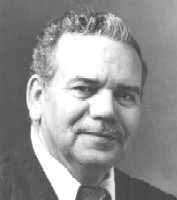Monday, September 11, 2006
Writing before you have a lead
Any number of news writers have convinced themselves that they can’t write unless they have their lead. As long as they labor under that conviction, they handicap themselves.
They struggle and sweat to come up with that perfectly polished first sentence. They waste time and effort that would be better spent getting on with the story—or in planning the story. In many cases, they neglect the planning and con themselves into believing that the story will fall into place once they have the lead.
The lead is important, indeed, vital, but it should be a worry you can deal with later. It shouldn’t be a yawning pit keeping you from beginning to write.
In his splendid new book, A Writer’s Coach, Jack Hart suggests a good method for dealing with the lead barrier. Write a theme statement, he says, and simply start writing from the theme.
It is excellent advice. You should write a theme statement—one sentence giving the gist of the story or article—in any case. Sometimes you will find that the unadorned theme sentence makes a perfectly serviceable lead. Sometimes you will come up with a better lead later. Either way, the theme statement has served its purpose.
Unless you are truly a rare exception, you can teach yourself to write without having the lead. You can learn to see a story or article in parts and start at any part. To do that, though, you must learn to plan the writing. The plan need not be elaborate—a simple list may do.
Once you free yourself from the belief that you can’t write without a lead, you will be a more versatile and more supple writer.
Think of how a movie is made. The director shoots the movie in scenes, but the scenes are not necessarily in sequence. The opening scene may be shot at any point in the process. After the shooting is done, the scenes are put together in the proper sequence to tell a story.
You can do the same thing in writing.
For reporters, especially, the ability to write part of the story has practical benefits. For example, when I was a city editor of a newspaper, I planned election-day coverage to be as painless as possible. I assigned stories to reporters and gave them deadlines and lengths. And I required them to write the bulk of their stories in advance.
Election night can be chaotic. Reporters want to wait till the last minute to get the latest news, but they must meet deadline. It makes no sense for a reporter who has a midnight deadline to wait until 11:45 to start writing his entire story. If he has most of it already written, it is easy to put a top on the piece and send it to the desk.
The material written in advance can include a recap of the campaign, background material on the candidates, a review of the issues, and more. Almost all of this can be cut as necessary if the reporter gets lucky and has time to write fresh material. If he has to go right down to the wire, though, having most of a story in hand relieves him of a lot of pressure.
With an election, you can anticipate the possible outcomes. Someone will emerge as the leader. Or the race will be too tight to call at press time. Or the vote counting may be fouled up and no one has a clue. Whatever the case, you can sum it up in minutes and stick a short top on your prepared story. You can always write a better story for the next edition or the following day’s paper.
Many other situations also call for writing before you know your lead. If you’re covering a major trial, for example, you should start writing your story while the jury is still out. It would be silly to wait until the verdict came in to start.
Sports stories, of course, are obvious candidates for writing before you know what the lead will be.
Writing coach Steve Buttry, who is now director of tailored programs at the American Press Institute, takes the idea a step further. Steve says you should start writing from the beginning, when the story is still at the idea stage, and continue to write in bits in spare moments as you are gathering your material. You might, for example, write a couple of paragraphs after you interview someone. Steve makes good sense. You can read his article here.
The benefits of writing as you report are several. You will save time, because some of the writing will be done earlier. The writing will help you clarify your thinking, pointing you to what else you need for your story.
And it will help you get rid of the crippling notion that you can’t write until you have a lead and everything is all tied up in pretty ribbon.
Comments:
<< Home
An advantage to this method is being able to test out different leads as you write and not feeling locked in to the first lead choice. So many times a lead pops out from a quote or source later in the research.
A disadvantage is losing focus while writing piecemeal and not making the work cohesive.
Post a Comment
A disadvantage is losing focus while writing piecemeal and not making the work cohesive.
<< Home

